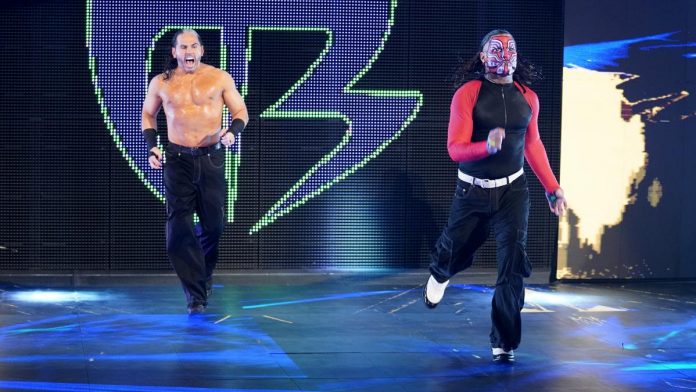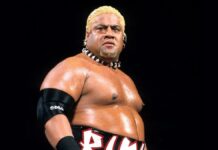
During the first episode of his The Extreme Life of Matt Hardy podcast, Matt Hardy talked about The Hardy Boyz vs. Edge and Christian in a ladder match from the 1999 No Mercy PPV event. Matt brought up how they were paid for the match:
“We got $5,000 for the match. We thought this was the show stealer, and then people were buying the replay for this match. We knew it was definitely special, and we addressed J.R. about this. J.R. ended up bonusing us each $5,000, so we all made $10,000 on that night. The No Mercy match payoff ended up being $10,000 after we questioned the $5,000 and we got a $5,000 bonus because I said, ‘I know there is so much buzz and so much hype behind this match. People are buying the replays specifically for this match because everybody wants to see this match.’ J.R.’s explanation was perfectly logical and reasonable. He said, ‘Well, coming into this match, it was a big platform and an opportunity for you guys, but you guys weren’t the ones that were selling this PV. You weren’t Stone Cold Steve Austin. You weren’t Triple H. You weren’t Undertaker or one of the main draws who actually brought people to the show to buy the PPV.’ We did get highlighted on that night with them, so that was understandable, but he did buy into our plan that people were buying the replay because of this match. We know a lot of people were buzzed and that created this unique like, ‘Oh my God. These guys are crazy. You have to watch this ladder match.’ So people were buying the PPV. It did really well on replays, so they did bonus us as far as that goes.”
“We had a downside guarantee. What a downside guarantee was is that you are guaranteed to make a ‘X’ amount of dollars. In 1999, it was $75,000. If you busted your a**, if you worked hard, if you got over, if you worked every show, then you can make double, triple, quadruple that guarantee. I’ll be quite honest. In that year, we tripled our guarantee of $75,000 in 1999. In 2000, we made 13 times our guarantee. You could bust your a** and get over, and that was the motivation to do better and make more money. That’s how they wanted talent to try and work harder to move up the card or become a bigger act.”






